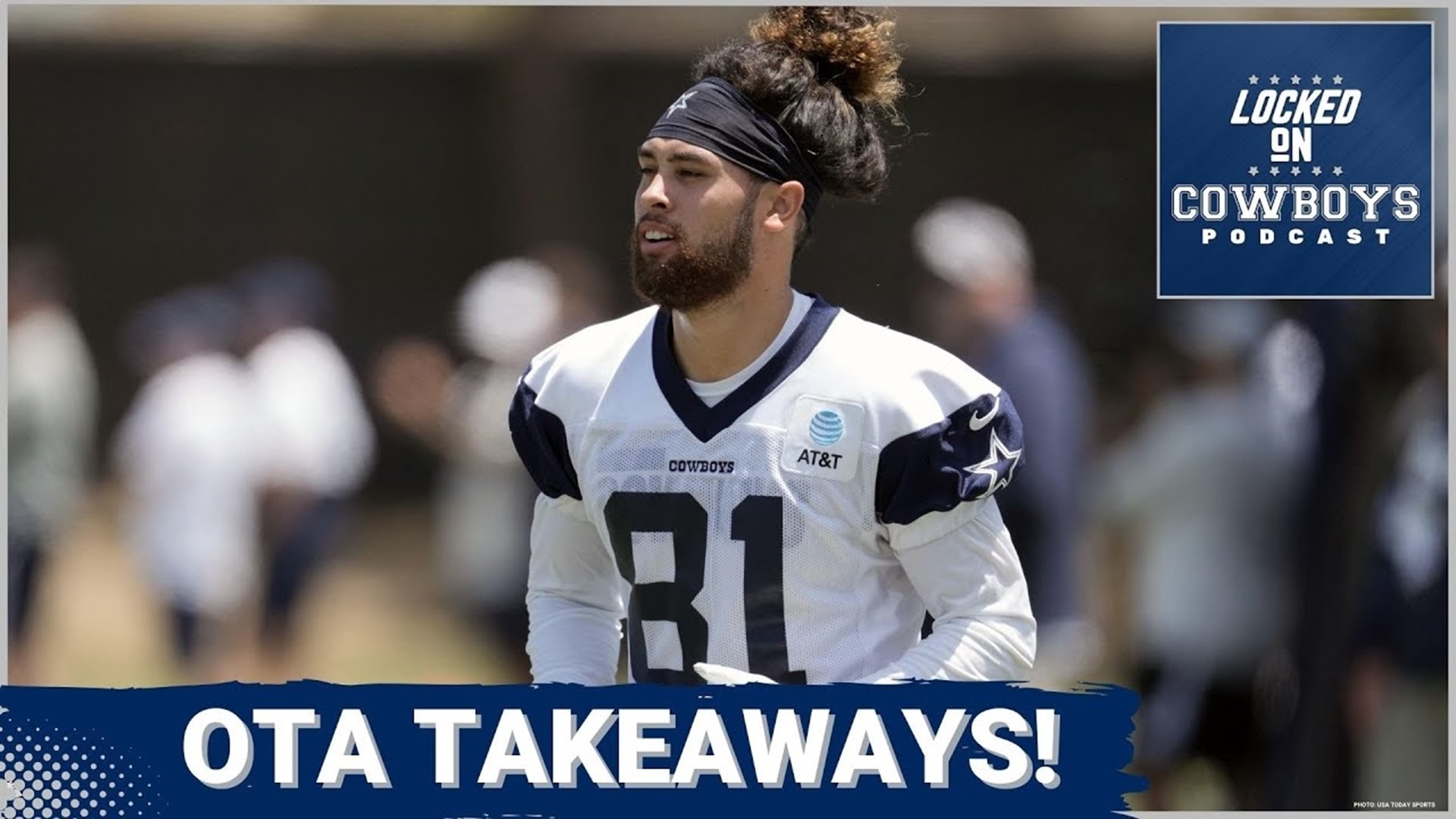DALLAS — The Dallas Cowboys are one of the more frugal teams in the NFL during the free agency feeding frenzy.
Rarely will you see Dallas spending their salary cap allotment on talent from outside the organization. Instead, the Cowboys braintrust prefers to re-sign their own player development successes to contract extensions.
It’s this path to roster construction that can sometimes lead the Cowboys to making mistakes when the evaluation of their own talent is incorrect. Such was the case with running back Ezekiel Elliott, whom the team gave a massive contract two years before it was necessary. The result was the team overpaying Elliott, then being forced to release him before the deal expired.
Cutting the veteran running back meant Dallas took a financial hit, but it also gave them some cap savings when June 1 rolled around. That time has now come with Elliott’s $10.9 million off the team’s ledger and available to spend.
The Cowboys now have over $20 million at their disposal as the season approaches. That's a significant amount of cap space, but some of that money is earmarked for in-season acquisitions, practice squad players, and other aspects of roster churn.
However, there are other ways that the Cowboys could put the newfound money to use. Signing a veteran to help at a position of need would be a wise way to use up some of the cap space. The Cowboys are not a finished product yet and there are players out there that would make sense for Dallas.
Linebacker, offensive line and wide receiver are three spots that could use a bump in talent. These aren’t the only areas that the team should consider, but it would mean more depth for the upcoming season if the Cowboys opted to spend for some additional help.
Deion Jones remains a free agent at linebacker and played for defensive coordinator Dan Quinn when he was with the Atlanta Falcons. He was a second-round selection for Quinn in 2016 and has been a productive player since entering the league. Aside from last season, when Jones played in only 11 games, the veteran linebacker has had at least 100 tackles in five of his first six years in the league.
At just 28 years old, Jones does a little bit of everything. The former LSU standout has 12 interceptions – five of which he’s returned for scores – and 11 sacks throughout his career. He is just one year removed from a 137-tackle season with the Falcons before struggling with the Cleveland Browns in 2022.
If the Cowboys are looking at a receiver to lengthen their rotation, Jarvis Landry could be a good pickup. The nine-year veteran wide receiver has slowed down in the last two years due to injuries, but Landry could see a revival in Dallas. Landry wouldn’t need to be a perennial 1,000-yard receiver for the offense, just a reliable target for quarterback Dak Prescott.
The Cowboys could also use a better option at swing tackle, or a starting quality guard to complement their current group of offensive linemen. The versatility that the team is utilizing for many of their young linemen is admirable, but having a legitimate choice would be ideal.
With the dearth of good options throughout the league, it won’t be easy to find an answer, but guard options include Dalton Risner, formerly of the Denver Broncos, and Trai Turner, who last played for Washington. Both could be the answer on the inside and allow the team to make sure starting right tackle Terence Steele is fully-recovered from his ACL injury and keep second-year man Tyler Smith at left tackle to further his development.
Another option to use the fresh cap bounty is working out extensions for any of the Cowboys who are soon to be free agents. Cornerback Trevon Diggs, wide reciever CeeDee Lamb, and Prescott lead the way in those discussions.
Extending Prescott would be the smartest path. The cost of keeping Prescott continues to rise and waiting much longer risks the price going even higher if fellow quarterbacks Joe Burrow and Justin Herbert get their new deals.
The Cowboys continue to say that they want to keep Prescott, so now would be the ideal time to re-sign him. Waiting until after the season gives the signal caller even more leverage, and the front office should avoid that scenario.
Diggs’ rookie deal is up after this season and he has done enough to warrant a new contract in Dallas. The same can be said for Lamb, who is already on the books for this year and next due to the team exercising his fifth-year option. Currently the cost for the All-Pro wide receiver is close to $18 million for 2024, so working out an extension would be wise to lessen the price tag for next season.
All three players are worthy of an extension, the Cowboys want to keep them all, and extending players is the avenue that Dallas prefers, so using some of the cap space that Elliott’s release opened up would make good business sense.
How do you think the Cowboys should use their remaining cap dollars? Share your thoughts with Ben on Twitter @BenGrimaldi.
More Cowboys coverage:

